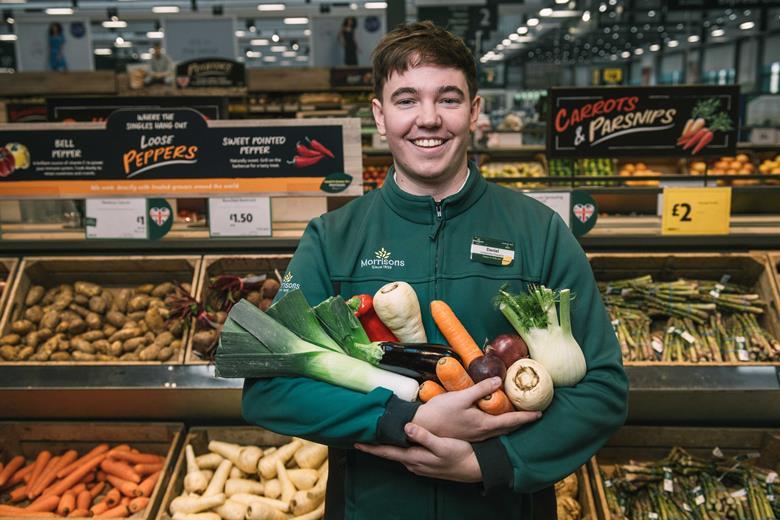MMorrisons have recently announced that they have banned plastic packaging for fruit and vegetables in 60 of their 491 stores, making them the first major supermarket chain in the UK to do so. The move comes after a ten-month trial period carried out in three of their stores (Skipton, Guiseley and St Ives), the results of which showed that the amount of loose fruit and veg bought by consumers increased by an average of 40 per cent. Customers are now able to choose from 127 varieties of fruit and veg – and buy them loose or put them in recyclable paper bags, saving an estimated three tonnes of plastic a week, or 156 tonnes a year. Whilst this is undoubtedly a very positive move, the real question is whether other UK supermarkets are going to follow Morrisons’ example?
Well, in a word: yes. Amid a global wake-up call with regards to environmental concerns, it seems many UK supermarkets are making some effort to reduce their usage of plastic. Waitrose has removed plastic bags in all of its stores as of earlier this year, instead offering a home compostable alternative for fruit and vegetable bags. The upmarket chain also pledged to remove all disposable paper cups from its stores in an effort to reduce its environmental impact and trialed a fill-your-own-container at a store in Oxford.
Meanwhile, Tesco, the UK’s biggest supermarket, began a trial at the start of the year to remove plastic wrapping from a selection of 45 fruit and vegetables. This comes after Tesco pledged last year to ban hard-to-recycle plastic packaging by 2019 and to make all of its packaging fully recyclable by 2025.
But it’s not just plastic that UK supermarkets are cutting down on. Last year Iceland announced it would stop using palm oil in more than half of its own-brand products ranging from biscuits to soap. Although the move won’t make much difference to the production of palm oil – Iceland only buys 1000 tons of palm oil annually – the supermarket’s intention is mainly to raise awareness about the impacts of deforestation caused by farming it.
As Keith Hann, Iceland’s director of corporate affairs, points out: “We hope to
Whilst it goes without saying that these supermarkets could have, or rather should have, taken more action in previous years to reduce their environmental impact, it is important that we celebrate the fact that they are taking responsibility for their actions and are trying to run their businesses in a more sustainable manner. Sadly, the same can’t be said for many other big companies. However, with an encouraging shift in consumer awareness about the dangers of plastic and proof from Morrisons’ trial that these environmentally friendly choices boost profits, perhaps they will finally be persuaded to follow suit.
Image Credit: Morrisons

